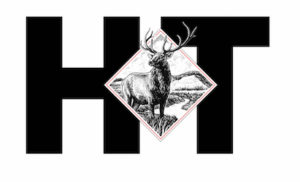RBC I When John Fleck began covering water (among other things) in 1995 for New Mexico’s Albuquerque Journal, he assumed he’d be writing stories about dried out wells and cracked mud. After all, as a Los Angeles native who grew up in a suburb that had replaced an irrigated citrus orchard, he’d grown up reading books like A River No More, by Philip Fradkin, and Cadillac Desert, by Marc Reisner, essential reading for water nerds.
As a journalist, he went looking for the kinds of stories these authors promised: stories of “conflict, crisis, and doom.” But he found a very different narrative. And after nearly 30 years spent covering some of the most pressing water issues in the West, Fleck is now writing a book, which is due to be published by Island Press next year. He recently spoke to the High Country News about the dilemma water journalists face these days—and why the West’s water problems aren’t as bad as we think.
HCN: What led you to the water beat?
John Fleck: My first daily newspaper job was with the Pasadena Star News in the mid-’80s, and I covered water there, in addition to other things. But water seemed more interesting than anything else because water is where human communities spring from and evolve around. Not only that, I grew up in a place that, like many places in the West, didn’t have much water. In Los Angeles, for instance, there was this audacious experiment to bring water in. They built these massive artificial rivers. So L.A. is organized around water but in that really weird and interesting way.
HCN: Where did the idea for your book come from?
JF: The thesis is that when it comes to our perception of water in the West, we’ve inherited this narrative of crisis, conflict and doom, from literature of the ’60s, ’70s, and ’80s, and especially from Cadillac Desert. Growing up reading those books, I really embraced that narrative. I thought that was our story—that we were headed for this great crash because we’d made the mistakes that Reisner wrote about.
HCN: But that’s not what you found?
JF: When I came to New Mexico, which is a mostly desert state living on the edge of its water supply, I kept looking for those stories that showed people running out of water. But over and over I found communities instead showing a lot more adaptive capacity than I think the traditional narrative gave them credit for. Albuquerque’s water use, for instance, is close to half what it was per capita in the mid ’90s. We’ve grown a bunch and are using less water than we were 30 years ago. And I saw these farm communities—which are really strong cultural underpinnings of the West—that have adapted to use less water.
It took me a long time to come around to the idea that people have actually succeeded in using less water. And how do communities do that? That’s really what my book is about—how do these places use less water and still succeed in being the kind of communities they want to be, in the midst of this pretty remarkable change?
HCN: What are some of those success stories?
JF: Las Vegas is a great example of success. A decade ago it was using 325,000 acre-feet of Colorado River water, and now it’s using 225,000 acre-feet, while its population has increased by 35 percent. They’ve recognized that the water supply is finite and that if they want to grow they have to do it with less. Of course, one of the fair criticisms could be that one of the options for Las Vegas is the city should stop growing, but we allow communities to define their own goals. And Las Vegas wanted to grow.
HCN: And yet, there are people in California whose water supply has run out. Does that undermine your thesis at all?
JF: No. So here’s the interesting thing: If you look at the places in California where the water has run out, it’s poor rural communities like East Porterville and Monson in the Central Valley—where for decades they’ve over-pumped groundwater for agriculture. Now they’re getting slammed because many people rely on shallow wells, and they don’t have the money to drill deeper wells. It’s really a poverty problem, exposed by drought.
We’ve seen this in New Mexico too. I did a piece in the Albuquerque Journal that looked at the drought of 2002 and 2003. There were lots of small rural towns where wells were running dry. The state of New Mexico and the federal government looked at the underlying causes and invested a lot of money into things like better well protection, drilling more wells, and interconnecting neighboring water systems.
So 2014-2015 comes along, and you had far fewer places running out of water. To me that shows there is potential to help these communities in California that don’t have the resources to deal with this problem on their own.
HCN: So, the pictures of cracked mud and dry wells don’t really tell the full story, but they tell the story people want to read. Do they also galvanize people in a way that less apocalyptic pictures wouldn’t?
JF: It’s such a problem. We are so incentivized by the apocalyptic and the apocalyptic helps galvanize action. I don’t know the solution to this. But I do know that one of the things that’s really missing from California drought journalism right now is that in story after story, reporters go to East Porterville and places like it and talk about how they’re running out of water. There are almost no stories where reporters go to communities that haven’t run out of water and look at how they succeeded at coping with these problems.
HCN: So where does that leave journalists who thrive on that doomsday narrative?
JF: I think there is value to the cracked mud pictures, but you have to offer hope to people for how these problems can be overcome. That doesn’t mean just writing happy, feel-good stories. It means finding a little more balance in the narratives that we share. Because there’s evidence in social science literature that the crisis narrative alone just makes people feel hopeless—that they can’t do anything about it. And this is one of the problems in the whole dialogue with climate change right now.
HCN: Are we now entering a post-Cadillac Desert era? Or will the problems identified by Reisner keep dogging us?
JF: I’ll answer two ways, and they’re contradictory. The problems will keep dogging us because they’re not problems that ever get solved. We’ve built big cities and big farming communities that were all dependent on a water supply that was larger than we actually had—and climate change will shrink it even further. It would be a lot easier if we’d not done the things that Cadillac Desert describes, like building Los Angeles and Las Vegas and Phoenix and Denver and the Imperial Valley and all that farming in central Arizona. But we’ve done that—we have those communities now.
And I don’t think people were villains in the way that Reisner portrayed them. They made mistakes, of course, but they were just doing what you did back then, which was build farms and cities in the desert. That’s what society directed them to do.
The thing that I think Cadillac Desert missed is this transition toward adaptation. Certainly Reisner’s later writings acknowledge this and I would argue even as he was finishing the book in the mid-’80s is people were already beginning to recognize and adapt to the scarcity.
HCN: Or perhaps the book itself helped spur those very changes?
JF: That’s definitely one possibility. One of my friends who writes about water in California says: “Cadillac Desert is out of date, but that’s because it rendered itself obsolete.” Reisner pointed out what we’d done wrong, and we all smacked our foreheads and said, “We can’t do that anymore.”
HCN: Are there places that are still struggling with that transition?
JF: I think in every community there’s tension between that old way of thinking about water, which just wants to use it all, and the new way of thinking that recognizes conservation. At the regional level, I think the continued talk in Colorado among a lot of people in the populated east side of the state, about the desire to divert more water out of the Colorado River Basin—to meet growing cities on the Front Range—is one place that hasn’t received the message yet, that there isn’t more water to take out, that there’s in fact going to be less.
HCN: Looming underneath that attitude is the future presented in The Water Knife, Paolo Bacigalupi’s drought dystopic, which is essentially about water rights in the near-future West.
JF: I love The Water Knife, but it’s a made-up story. It’s one possible pathway. But I don’t think it’s going to happen. I think the things we’re doing show we have the capacity to avoid that future. But it’s a great way of startling us—spoiler alert—with this extreme enforcing of water rights with the helicopters coming out of Las Vegas and blowing up another water user’s treatment plant. I mean I guess that’s one way of enforcing the Doctrine of Prior Appropriation (laughs). I kind of liked that.
HCN: So, in a way, your book is the anti-Water Knife?
JF: Exactly. My book is saying, “Let’s look at how we might take advantage of the steps we’ve already taken in addressing our water problems and create a future for ourselves that we’d really like.” Because if we take the narrative of crisis and conflict to its extreme, we’re going to be sending out squadrons of armed helicopters against our neighbors, and that’s not a West that any of us wants.



















